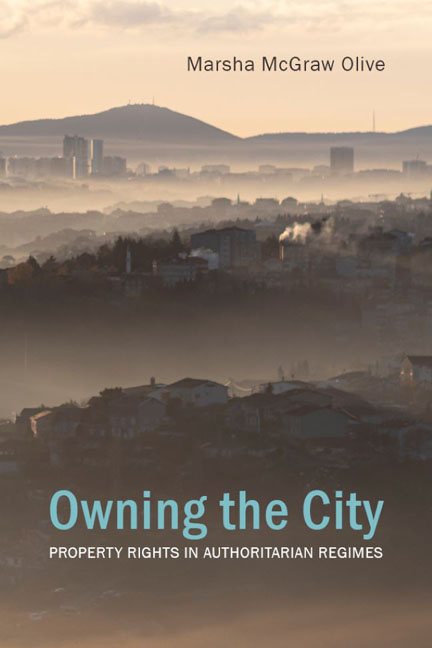Book contents
- Frontmatter
- Contents
- Acknowledgements
- List of Figures and Tables
- 1 Introduction and Argument
- 2 Globally Successful Cities
- 3 Urban Political Economy in Historical Perspective
- 4 Urban Land Governance: Liberal and Illiberal Patterns
- 5 Cautionary Tale: Moscow
- 6 Cautionary Tale: Istanbul
- 7 Conclusions and Prognosis
- Bibliography
- Index
5 - Cautionary Tale: Moscow
Published online by Cambridge University Press: 20 January 2024
- Frontmatter
- Contents
- Acknowledgements
- List of Figures and Tables
- 1 Introduction and Argument
- 2 Globally Successful Cities
- 3 Urban Political Economy in Historical Perspective
- 4 Urban Land Governance: Liberal and Illiberal Patterns
- 5 Cautionary Tale: Moscow
- 6 Cautionary Tale: Istanbul
- 7 Conclusions and Prognosis
- Bibliography
- Index
Summary
The conversation about social transformation in Russia has been conducted not only with words but also with physical actions as incarnated in bricks, stones, and tiles. Moscow's parks, streets, and squares have been used as venues for modernizing urban space while strengthening the authoritarian civic order.
Maxim Trudolyubov, Republic, 29 November 2018
We need land. This is the only thing that costs serious money in Moscow. All these boxes are of no value, and the land will only get more expensive.
Vyacheslav Borodulin, Moscow Council of Deputies, Svoboda, 22 May 2018
The weight of the past, the perils of the present
Moscow offers a distinct case study of real property rights in authoritarian regimes because of its long communist past and brief capitalist present. Russia created capitalism in the early 1990s in the absence of private property, democratic political organizations, regulatory bodies, an active civil society and the rule of law (Rutland 2006). Looking at real property gives a new angle to the “ ‘holy grail’ in the political economy of transition, the evolution of property rights” (Sharafutdinova 2021). Internationally, real property (buildings and land) comprises two-thirds of a nation's wealth (Dam 2006), and is the prin-cipal asset of middle classes and elites in Russia.
This chapter details the Russian odyssey in search of a liberal urban land regime. It reviews how political authorities and bureaucrats succeeded nationally but fell short locally in establishing tradeable real property rights,market-oriented regulatory systems and transparent, contestable planning decisions. Progress by Russia on every element of land governance is undeniable, as testified by millions of registered real property owners and high global rankings on property registration systems. Nevertheless, real property rights are contested, with serious economic and political consequences.
The key insight is that the system of real property rights built by Vladimir Putin sustains yet could eventually undermine his regime. According to Timothy Frye (2021), “Personalistic autocrats struggle to balance defending against the two main threats to their rule: coups by the political elite and protests by the public.” Putin is increasingly pressed to balance these threats.
On the one hand, he helps the middle class build real estate wealth, providing a buffer against income shocks. But he is reneging on the political benefits that evolved alongside real property ownership in democratic societies.
- Type
- Chapter
- Information
- Owning the CityProperty Rights in Authoritarian Regimes, pp. 89 - 120Publisher: Agenda PublishingPrint publication year: 2022

